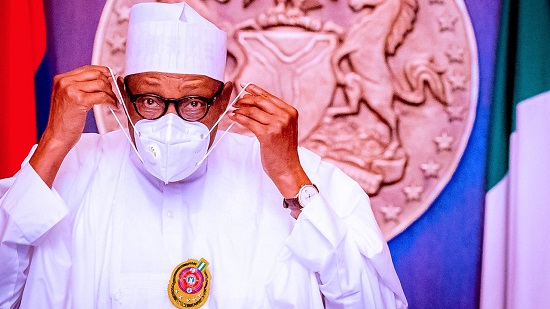Civil society organisations (CSOs) under the auspices of Conference of Northern States Civil Society Networks, has urged President Muhammudu Buhari to stop demoralising the nation’s anti-corruption agencies and focus on tackling its pressing economic woos.
The CSOs described the granting of pardon to former Governors Joshua Dariye and Jolly Nyame of Plateau and Taraba States by President Buhari as unfortunate and shocking.
In a statement issued to journalists yesterday by its Chairman, Ambassador Ibrahim Waiya, the group admonished Buhari to, as matter of urgency, reverse his decision on state pardon granted to the corruption convicts in the interest of Nigerian citizens.
The group added that failure of the president to reverse his decision, the conference would be left with no option but to canvass for the support of other CSOs within and outside the country to pass a vote of no confidence on the federal government.
“And this measure we believe may lead to a total loss of public trust, and by implication the government may lose its integrity and support of the Nigerian,” said. The noted that the decision taken by President Buhari, through the Council of State, has dampened the anti-corruption agencies’ resolve to contain the cancer of corruption in the country.
Regrettably, they said, President Buhari, who rode to the corridor of power under the guise of fighting corruption, his government’s actions and policies are against the efforts to support and strengthen the anti-graft institutions in the country.
They said: “It has come to our notice that, President Muhammadu Buhari GCFR, has through the council of states pardoned two former state governors who were jailed for stealing public funds in 2018 and were yet to serve half the length of their jail terms in prison. This is rather unfortunate, shocking and at best, paradoxical coming from a man who rode to the corridor of power under the guise of anti- corruption. Corruption over the years in Nigeria had gradually succeeded in causing a loss of trust and a breakdown of social capital in governance.”
They added: “High inflation has also taken a toll on household’s welfare and high prices of essential commodities. The Nigerian National Bureau of Statistics said in 2020 that 40 per cent or 83 million Nigerians live in abject poverty.
“Although Nigeria’s poverty profile for 2021 has not yet been released, it is estimated that the number of poor people will increase to 90 million or 45 per cent of the population in 2022.
“One would have thought that the current administration will preoccupy itself in solving the pressing economic woos of the nation, rather than demoralising the anti- corruption agencies effort and dampening their resolve to contain the cancer of corruption in the country.”
The group, however, explained that the Economic and Financial Crimes Commission (EFCC) under the leadership of AbdulRasheed Bawa has reignited Nigerians’ hopes through its diligent prosecution of high profiled corruption cases.



